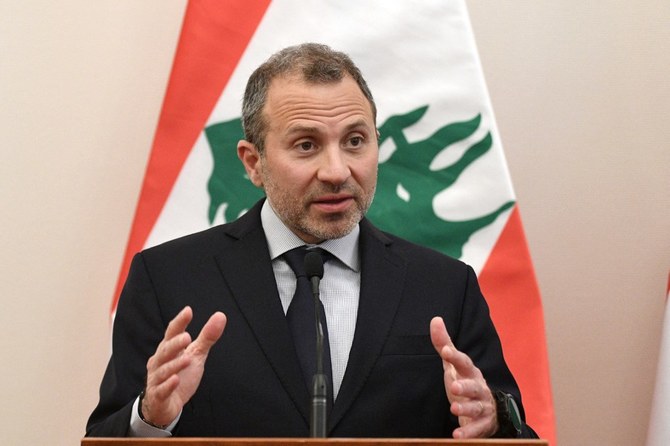
By Najia Houssari – ARABNEWS.COM — BEIRUT: The Lebanese parliament on Monday passed an appropriation bill to cover public sector employees’ salaries and transportation allowances. The decision came even though the caretaker government led by Prime Minister Najib Mikati has not yet approved the 2023 budget or adjusted the figures in the 2022 budget. In a controversial session, the 128-seat parliament also passed a proposal for a law that provides financial incentives and transportation allowances to professors at the Lebanese University during the current academic year. The session was boycotted by 29 MPs representing opposition Christian parties and reformist MPs. The session achieved a quorum with the presence of MPs from the Free Patriotic Movement bloc, led by MP Gebran Bassil. This parliamentary bloc considered its stance to be in line “with the principle it adopted, which limits its participation in legislating essential matters related to the higher interests of the state.”
The boycotting MPs emphasized in a joint statement that Monday’s meeting came after Hezbollah and Amal Movement team disrupted the 12th voting session last Wednesday. According to the constitution, parliament cannot legislate if the position of president remains vacant. It is exclusively an electoral body until the president is elected. Therefore, the MPs said the session is unconstitutional, and additional appropriations cannot be approved in the absence of the 2023 budget, which has not been passed by the caretaker government lacking parliamentary confidence. The boycotting MPs from the Lebanese Forces, Kataeb and Tajaddod blocs said that “the arbitrary and unfunded increases lead to inflation, which previously resulted in cutting the purchasing power of these salaries in half.” This approach “lacks seriousness, vision, and a comprehensive plan, and it does not address the problems,” they added. Speaker Nabih Berri responded to the boycotting MPs at the opening of the session. He said: “Some parties believe that the government should not meet, and the parliament should not convene or legislate. If we want to proceed with what they want, then we will never work.” Mikati said during the session that “the 2023 budget is ready, and the Finance Ministry will send the final draft of the budget to the government before the end of June to begin its discussion, and we will call for consecutive government sessions to approve it.”
A political observer said that Berri and Hezbollah managed to corner Bassil into joining Monday’s session since it related to people’s salaries. Their move came after Bassil’s positions merged with the opposition Christian forces a week ago regarding voting for a single presidential candidate against the candidate backed by Hezbollah and the Amal Movement, said the observer. Samir Geagea, head of the Lebanese Forces, also commented on Monday’s session, saying it was created by those who obstructed the election of a new president for the country. “The actual solution to our problems lies in filling the presidential vacuum, not tampering with the constitution and laws to pass ill-considered decisions, which further exacerbate the situation in Lebanon,” said Geagea.
The caretaker government issued a decree last month to pay full salaries to public sector employees at the Central Bank’s Sayrafa rate of 86,300 Lebanese pounds to the dollar. The decision includes the salaries of judges, military personnel, ministry employees, public administrations, public institutions such as Ogero and Electricite du Liban, government hospitals, and the Cooperative of Civil Servants, as well as pension for retirees from the public sector. Monday’s approval of the appropriations allows for the payment of additional compensation, equivalent to four months for general administrations, three months for military personnel and retirees, and a new daily transportation allowance of 450,000 Lebanese pounds. These payments will be fully disbursed for the month of May and retroactively paid to all employees during the current month of June. There are more than 250,000 public sector employees, including military and security forces. According to a statistical study by Information International, a Beirut-based research consultancy firm, there are 120,000 military and security personnel, 40,000 employees in the education sector, 25,000 employees in ministries and public administrations, and 115,000 employees in public institutions and municipalities. Additionally, there are 70,000 retirees, most of whom are military personnel. The increase in the number of state employees is attributed to political and sectarian favoritism in Lebanon. The International Monetary Fund is demanding that Lebanon reduce the number of these employees over a period ranging from five to 10 years in order to limit the depletion of public funds.
Currently, the cost of public sector salaries amounts to 12 trillion Lebanese pounds annually, which is equivalent to $8 billion, according to the old official exchange rate of 1,500 LBP/USD, or $800 million according to the new official exchange rate of 15,000 LBP/USD. The Lebanese pound has lost more than 90 percent of its value against foreign currencies due to the economic collapse that Lebanon has been facing since 2019, and the salary of a public sector worker no longer exceeds $100, at best.



